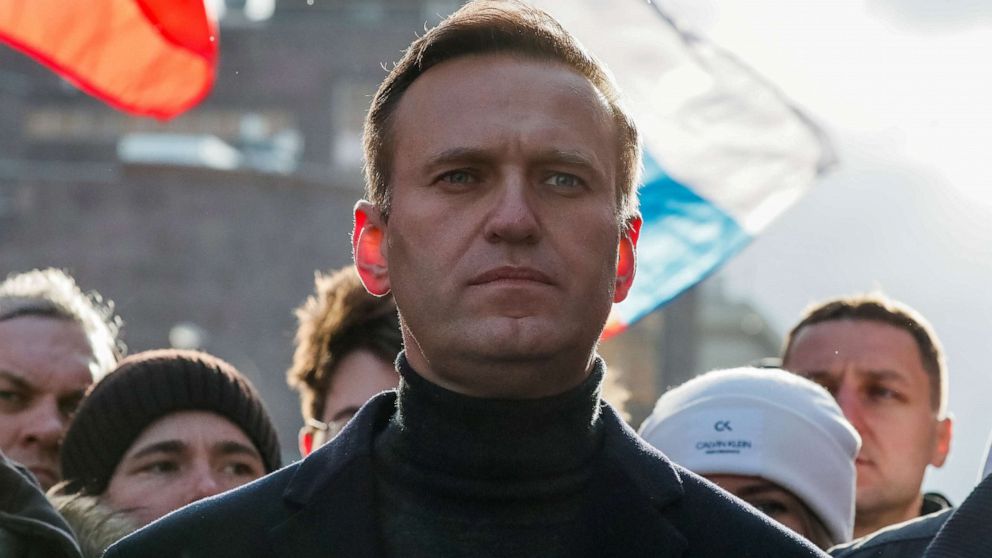Alexey Navalny’s team pushes for successful elections as Russian opposition leader remains hospitalized
BERLIN -- The Kremlin's desperate attempt to silence its fiercest critic, Aleksey Navalny, has not changed his stature, even as he lies in a hospital bed in Berlin.
"Navalny is the only threat the ruling party is facing," Serguei Guriev, a Russian economist and former Kremlin advisor, told ABC News in a recent interview.
Navalny, 44, was allegedly poisoned while on his way back to Russia's capital from Tomsk in the vast Siberia region last month, where he was helping independent candidates prepare for upcoming local elections. The prominent opposition leader and anti-graft activist was promoting his controversial tactical voting campaign, "Smart Voting," which proved successful last year in Moscow during council elections when the ruling party lost nearly half its seats.
Navalny came up with the idea in the fall of 2018 and it was well-received by members of his Anti-Corruption Foundation (FBK), according to Navalny's chief-of-staff, Leonid Volkov.
"At FBK, we do have internal debate but with Smart Voting, everyone liked it," Volkov told ABC News in a recent interview. "It was just smart and brilliant."
Vote for anyone except Putin's party
With the Smart Voting initiative, supporters get an email on the eve of elections informing them which candidate is the strongest to vote for -- that is, the candidate with the best chance to defeat President Vladimir Putin's party, United Russia.
"We can say clearly that in Moscow this result is a triumph for Smart Voting," Navalny reportedly said after the election results were released in September 2019.
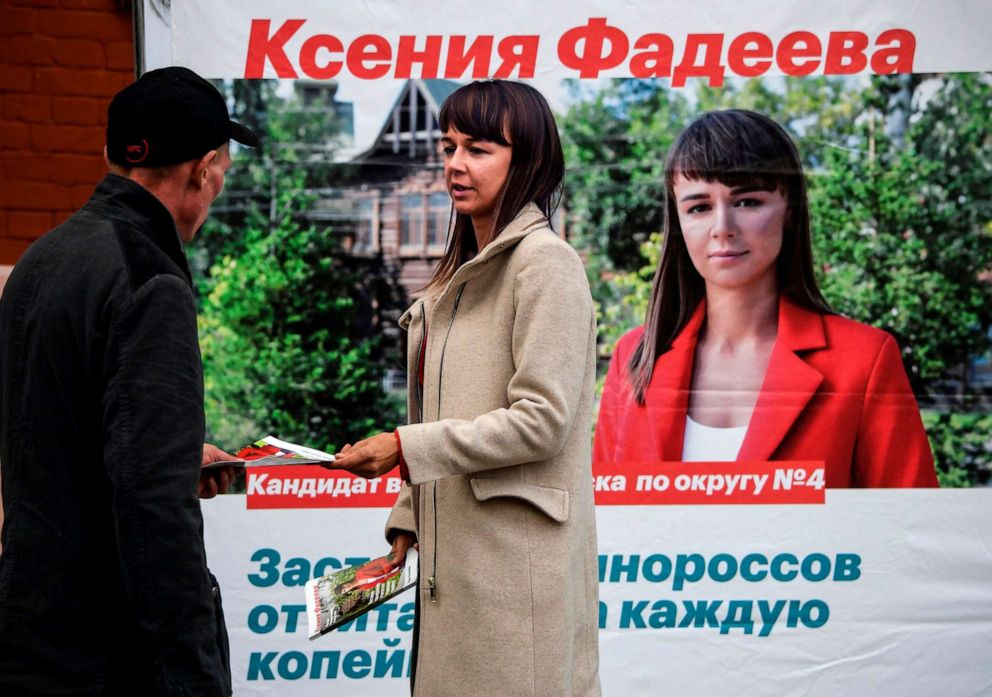
The strategy aims to "short-circuit" a political system implemented by a KGB dynamic that discourages and even forbids any contesters to run for office except Putin allies, according to Russian political analyst Alena Epifanova.
"For example, Navalny was never allowed to get a party," Epifanova told ABC News in a recent interview, adding that this only forces the opposition to get creative.
With this pragmatic approach to tackle the various tricks and tools of the Kremlin to preserve power, Navalny has rocked the ruling state, Epifanova said.
The Kremlin's 'terror campaign'
Beatings, false accusations and long detentions are just some of the consequences Russian activists face if they express political freedom.
"It's a terror campaign," Guriev to ABC News. "Today, being a militant or simply having an opinion is dangerous in Russia. Poisoning his most charismatic leader, Navalny, was aimed to send a clear message to activists in Russia: If you fight against us, you can pay for it with your life."
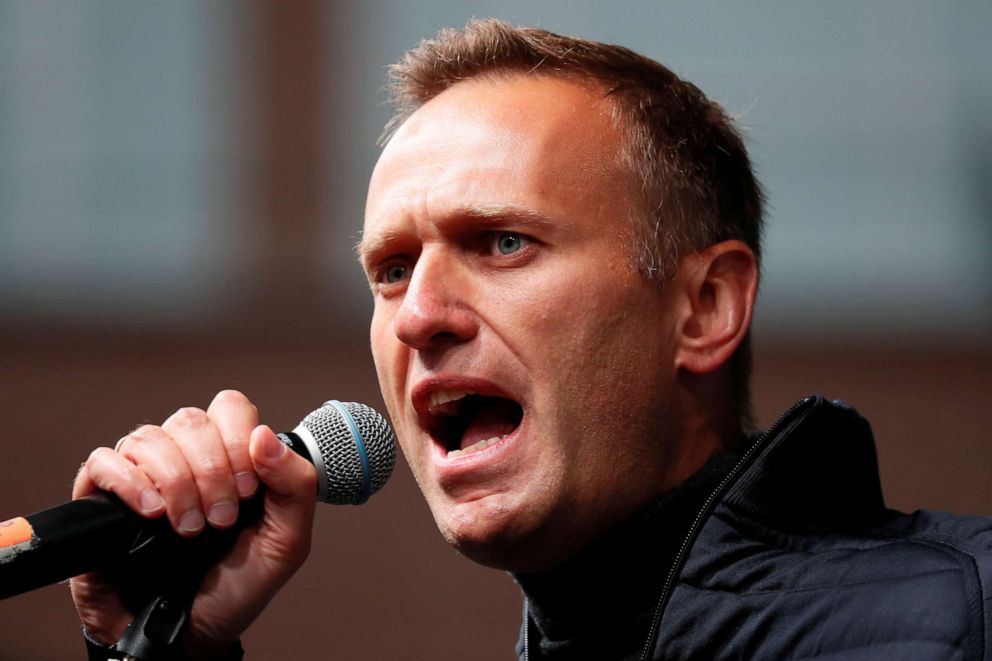
Guriev himself experienced persecution before fleeing Russia in 2013. He was repeatedly interrogated by government investigators over a report he co-authored that criticized Putin's imprisonment of oil tycoon Mikhail Khodorkovsky, once Russia's richest man.
Amid certainty that his next interrogation "could result in the loss of my freedom," Guriev bought a one-way ticket to Paris, where he is now a professor at Sciences Po.
“What happened to me is similar to an accident, or a rare disease," Guriev wrote in an op-ed published by The New York Times in June 2013. "Everybody (in Russia) faces the risk of contracting such a disease, but may also be lucky enough to avoid it. There are behavioral traits that reduce the risks -- not speaking out in favor of the rule of law or against corruption, for example."
'He is the bravest of us all'
Navalny was transferred in serious but stable condition from a Russian hospital to one in Berlin after falling ill last month. Germany's federal government subsequently announced that Navalny had been poisoned with a Novichok nerve agent, developed as part of a secret Soviet chemical weapons program. The Russian doctors who initially treated Navalny have continued to claim that there was no evidence he had been poisoned, while Russia's foreign ministry has accused Germany of an "information campaign" and making allegations without evidence.
Charite University Hospital Berlin, where Navalny is receiving treatment, released a statement Monday saying he has been taken out of a medically-induced coma and that his condition "has improved," though it was still too early to gauge "the potential long-term effects of his severe poisoning."
Kremlin spokesman Dmitry Peskov told reporters in Moscow on Thursday that Russia is ready for international cooperation, including with Germany, to determine the causes of what happened to Navalny. But Peskov said any claims that Russian officials could have had a hand in the alleged poisoning are inadmissible.
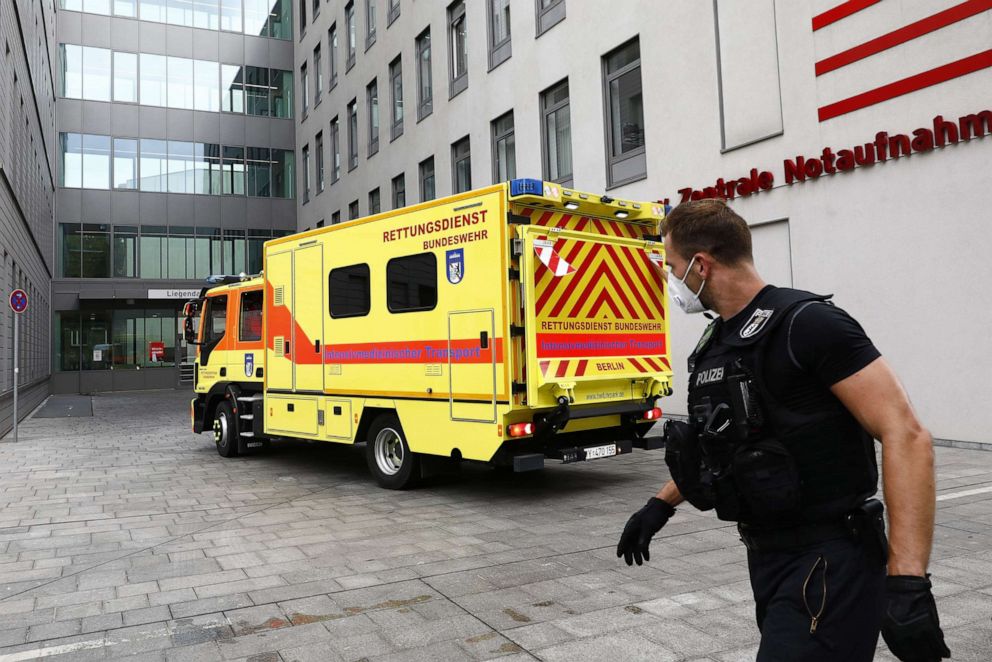
The alleged poisoning was not the first attempt to discourage Navalny. Since creating the Anti-Corruption Foundation in Moscow in 2011, the father of two has been jailed numerous times, tried for fraud and is partially blind in one eye after a chemical attack in 2017. Yet he has never once retreated from his cause.
"He is the bravest of all of us," Volkov told ABC News, adding that he does not believe Navalny will ever leave Russia.
Volkov described what it's like being an opposition activist in Russia. The 39-year-old has spent a total of 120 days behind bars after being arrested dozens of times for protesting alongside Navalny.
"This is true that if a police officer is getting closer, you already know what will happen," he said. "You know how to react, what you will go through in jail, the questioning."
Navalny's investigative videos rack up millions of views
Despite hostility from Moscow, Navalny has built a massive audience online via the video-sharing platform YouTube, garnering millions of subscribers and attracting swaying voters. His viral videos have disclosed investigations by his Anti-Corruption Foundation on the conspicuously luxurious lifestyles of the Russian elite, prompting outcry and protests.
The target of one those investigations is Moskovsky Shkolnik, a company that provides catering services to Moscow schools and residential care facilities. The company has been linked in media reports to Russian businessman Yevgeny Progozhin, a close ally of Putin. Navalny said he went after the company for its poor quality of food, potentially making children sick, and because it has monopolized the Russian market due to its ties to Putin.
Prigozhin has since vowed to ruin Navalny’s life with a court penalty of 88 million Russian roubles (approximately $1.2 million). Recently, Prigozhin said in a statement that if the opposition leader survives, he will ensure that "Navalny will be liable with the full severity of Russian law."
A Russia without Navalny
With Navalny still hospitalized in Berlin, Volkov is currently supervising the "Smart Voting" initiative, which he said he hopes will become even "more successful." The campaign has seen a significant increase in voter registrations and three times more users on social media than the previous week, according to Volkov.
"Of course, the absence of Aleksey in our movement is terrible. He is the charismatic key figure we need, but we are doing everything we can by vowing people to vote," Volkov told ABC News.
"Don't believe that I am used to violence or bad news, such as Aleksey's poisoning," he added. "You never get used to that. Never. And it's always painful."
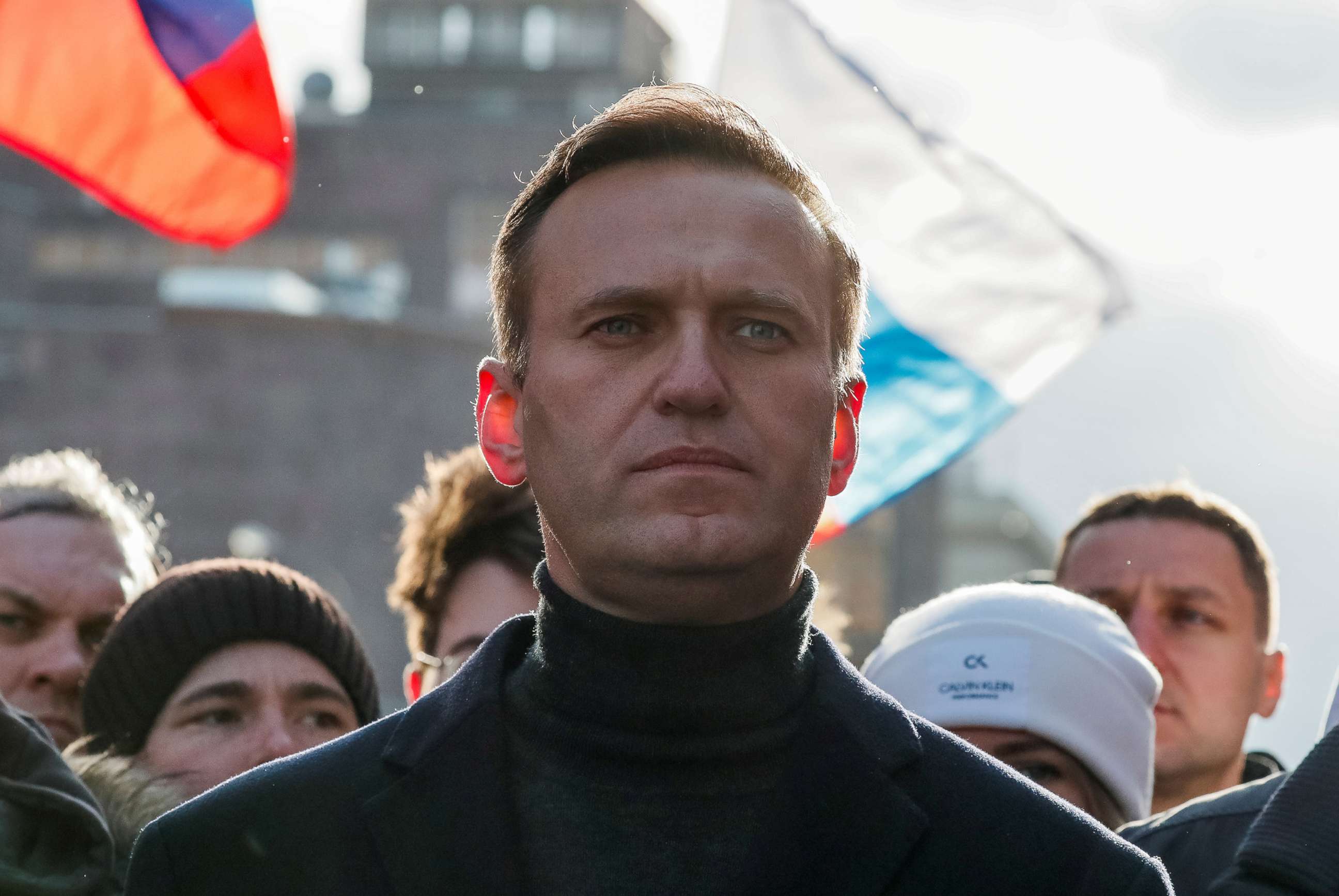
With Navalny out of the country, political analysts foresee a possible long-term benefit for the Kremlin for not having their toughest critic on Russian soil.
"Navalny abroad has not the same impact. His level of legitimacy and influence is immediately lower," Epifanova told ABC News. "The Kremlin loves this type of geopolitical issue as Putin is reported to be bored of domestic politics. It also shifts the attention away from the bad economy, the pandemic or the lack of structural reforms."
Starting Friday, Russian citizens will vote to elect 18 governors and city councilors over a three-day period. Russia's lower chamber of the parliament, the State Duma, approved an amendment in July allowing elections to be held over the course of multiple days rather than just one, raising fears of the likelihood of possible electoral fraud.
"We don't know what will happen with these ballots at night," Volkov said. "This is dangerous for transparency."
